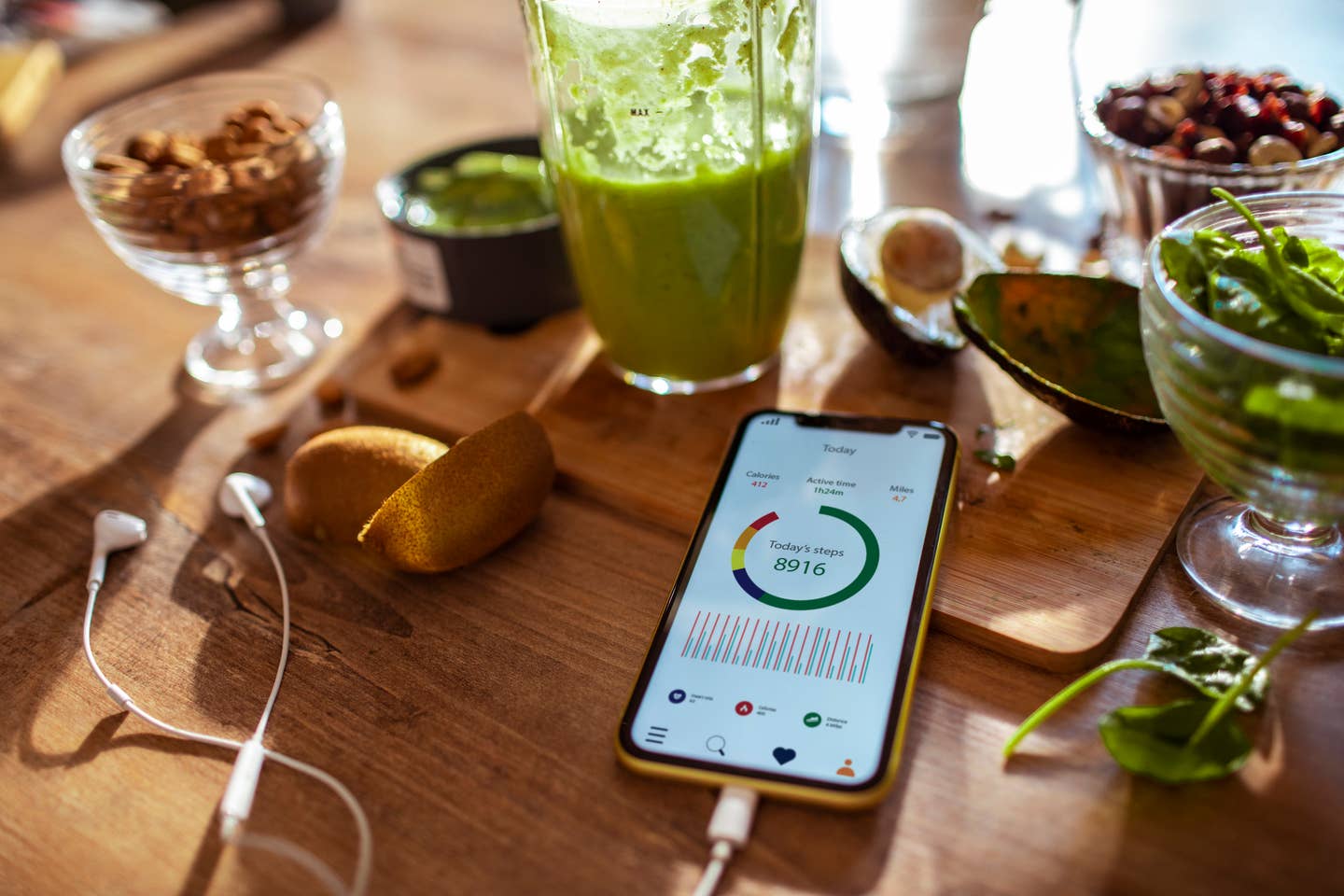
To Lose Weight and Keep It Off, New Study Says: Hold Yourself Accountable
As anyone knows who has set out to lose weight once and for all, creating healthy habits, like staying out of the snack cabinet and getting out for that morning walk or run every day can be tough to maintain even if you start strong. Now a new study from Drexel University and published in Obesity tells us that the trick is to not go it alone, but share your progress and your data with a trainer, coach, or anyone who encourages you. The key is accountability.
Prior studies have found accountability is beneficial, but this one confirms that the trick is to actually share data such as calories eaten, minutes logged on the treadmill logged, and inches and pounds lost. Coaches with that kind of day-to-day, week-to-week info were better able to help clients stay on track, according to this latest research.
Methodology and Results of the Study: Sharing of Data is Caring, and Succeeding
The study tracked participants for a year and tracked their health data in three ways. Each one was asked to wear a Fitbit fitness tracker, weigh themselves on a connected digital scale, and log their food intake in a smartphone app. The first three months were allocated to the initial weight-loss stage. During this time participants took part in weekly group sessions where they learned behavioral skills.
The second half of the study was dedicated to maintenance, and each one received a weekly text from their coach and a monthly phone call to track their progress. But one-half of the participants' coaches had access to their data while the other half did not. During the call, the coach with the data could dive deeper into behavior changes (as in "you missed that workout, what happened?") while the coach without the data had less transparency into what was actually going on. The participants whose coaches had the data on hand were more successful at keeping the weight off, meaning the more accountability you have, the better.
“This is the period that is often hard for folks who want to lose weight,” said Meghan Butryn, PhD, lead author of the study, associate professor in the College of Arts and Sciences and director of Research in the WELL Center. “And weight that is initially lost tends to start to be regained.”
When coaches had access to data, it helped keep the weight off
“We were interested to see if weight-loss maintenance would be better when coaches could see the data and provide feedback and a sense of accountability to participants, which might help sustain a high level of motivation to keep up healthy eating behaviors and physical activity,” said Butryn. And indeed that is exactly what she and her colleagues found.
We asked a personal trainer for her views on how important this level of accountability is in helping clients reach and maintain their goals. “One hundred percent, I think accountability is hugely important,” says Claire Simpson, a personal trainer based in the UK. "I like to think that accountability via working with a professional would be more effective, but realistically I think it depends on the individual trainer and her experience" with working with data, she added. Food and diet is one thing, she adds, but, “with regards to exercise, I think accountability to a trainer weighs in stronger.”
Here are 5 steps to help you be more accountable and reach your goals:
1. Self-monitoring gives you a higher chance of losing weight
Studies confirm that using self-monitoring, such as weighing yourself weekly or tracking your activity on a fitness tracker, gives you a greater chance of success in losing weight. The problem with self-monitoring is that most users lose motivation and momentum and abandon their efforts, so consistency matters. Make a pact with yourself to weigh yourself every Monday morning, before you get busy or eat or drink anything that may make you put it off. Reserve judgment and just tell yourself: This is where I am at now, and by eating healthy and exercising I am taking steps to build a healthier body.
2. Log your data consistently even if you don't share it with anyone
Data around what you are eating, how you're feeling and your daily activity levels can be crucial in maintaining weight loss. You are the only person who can log this info, so even if you don't care to share it, write it in your calendar or a progress diary -- someplace that lets you be accountable to yourself! This is not only the best way to keep tabs on your progress but it will show you all the work you've put in and make you feel like keeping going even if you have lapses. So whether you want to track your health journey on paper or a fitness tracker app, look back and admire all the great work you've done.
3. Don't be too hard on yourself. Use data as a tool to see how far you've come
A study at Oxford found that feelings of shame around not meeting particular targets were linked to giving up. "Feelings of shame were linked with abandonment of efforts," the authors wrote. "Findings highlight the centrality of interpretation of self-monitored data, the implications this interpretation has on the sense of self, and the impact of broader discourses." Essentially see the weighing and tracking as a positive, notanother way toget down on yourself or come up short. Your tracking is evidence of your efforts, even if your expectations for success are high. Watch the progress and tell yourself you are inching toward your goal. Upshot: viewing self-monitoring as a tool to help maintain your healthy weight loss is more effective than using it to recriminate when you slip up.
4. Your source of accountability works better if it's external
The conclusion of Drexel's study was that having someone other than yourself to hold you accountable for all your positive efforts is more effectve than only self-monitoring, though that is still helpful ifyou're not willing to share your journey with someone else. It does not need to be a trainer, coach, doctor or other professional. It can be a sister, friend, training partner, team, or someone else in your circle (so long as it's not a critical voice since the whole point is to give them the information they need to encourage you and bolster you up when you struggle.
So whether you prefer a nutrition or fitness pro, or a friend, do what's right for you since like diet and exercise the "best" approach to accountability is the one you uwill stick with.
5. Do not be afraid of usuing social media if it works for you. Join a FB group
All we hear about is how terrible for our egos comparing ourselves to others on Facebook or Instagram can be. But if it helps you to join a FB group and tell them: "Hey I'm trying to stick to a healthy diet, any great snack ideas?" this can be just the community you need to help you through a late-night snack attack. If you love to see other inspirational fitness or diet imagery, follow influencers that make you feel like part of that world, and then comment that these posts are helping you stick to your weight loss goals. “A lot of people find social media to be really effective” says Simpson.
But while you may not want to start by sharing your starting weight you can share your goal to lose 15 pounds or whatever it is. No one needs to know what the absolute numbers are. So when you announce to friends and followers that you've lost your goal of 25 pounds you can expect the crowd to go wild.
There are instances where social media for accountability has been so successful people have turned their journeys into careers. Simpson notes “A lot of today’s Instagram influencers started out as regular people following a fitness routine or showing their workout plans or diet tips to “be accountable” or be a part of something larger than themselves, and then they gained so much momentum they made their fitness routine or diet plan into a career.”
Of course, that may not be your goal, but the more you share, the more likely you are to reach your own healthy body goals.
More From The Beet






